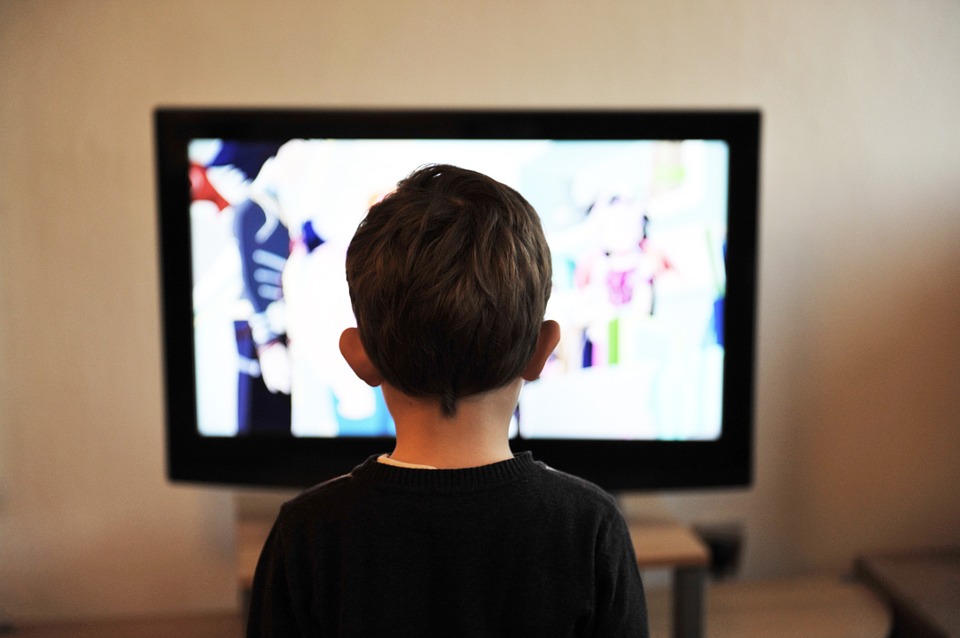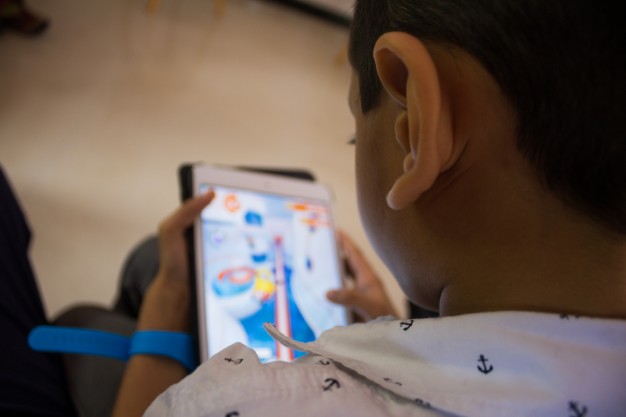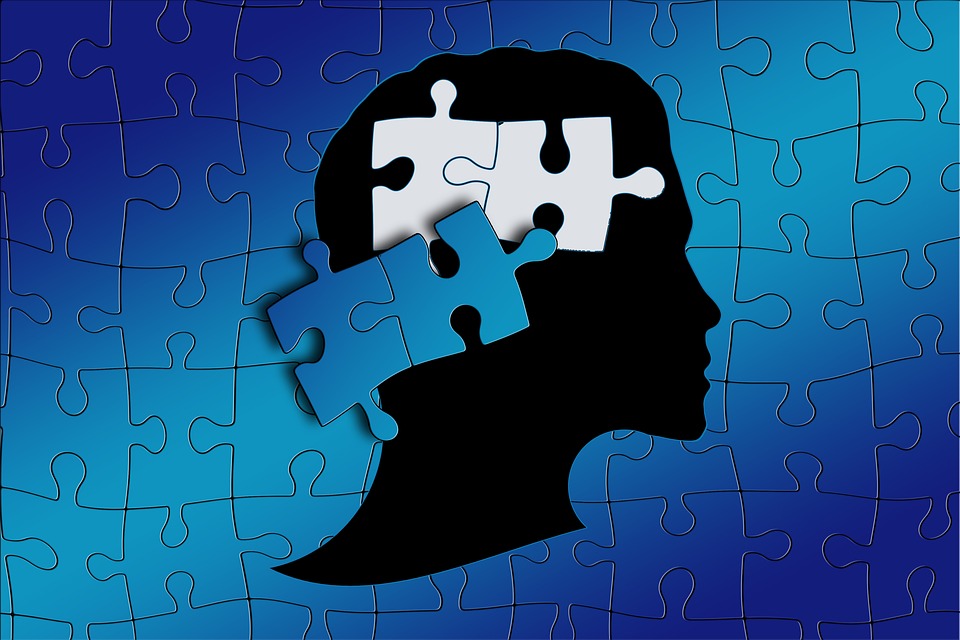Dr. Raluca Teleanu, neurologist: “Over an hour to watch TV a day is a lot for a child. It can lead to a light autism, but they are not autistic but are “autized” by the environment in which they live “

Dr. Raluca Teleanu, Head of Pediatric Neurology at Children’s Hospital “Victor Gomoiu” in Bucharest, reveals for “Weekend Adevărul”, both from the doctor’s and mother’s experience, precious tips for protecting the brains of the children before they are born until the age of adolescence.
The baby’s brain develops in the first month of intrauterine life, often before the mother learns she is pregnant. When the baby comes to the world, the brain is ready to make connections. At 3 months, the brain has 1,000 trillion synapses. Any information the baby receives is creating a synapse. But most of the brain learns from love, says Dr. Raluca Teleanu (43), pediatric neurologist.
The importance of parents presence in children’s lives, how we can understand the child beyond words, the neurological problems that are more and more common among young ones, children being „autized”by the TV are still being talked to us by Dr. Raluca Teleanu.
“Weekend Adevarul”: In intrauterine life, which develops first: brain or heart?
Dr. Raluca Teleanu: The brain first develops, then the heart, somehow. But what I say many times is that when we get pregnant, we often do not know it, but the brain begins to form right out of those moments. Talking with mothers over the years, I realized that many mistakes happened in the first month of pregnancy. When a serious illness occurs, there is often the question: Why my child? This could also be the answer for some neurological problems? Sometimes we find a cause, sometimes we do not find it. But in any case it is to be taken into consideration that when we think of conceiving a baby it is good to already be on a folic acid treatment. Let there be at least this precaution.
Parents are scared of the word psychiatrist, and it seems to them that if they come to talk to a psychiatrist, it is less serious. I always encourage them to go to the psychiatrist. It is important to find a solution for the child. Another category of children I see, but I do not monitor because they do not need a neurology consult, are those with suspicion of autism. I try to respect some rules that I have proposed, including teamwork, and send patients with autism to a psychiatrist and a psychologist. Only if my presence is needed, if they have epilepsy, because there are children with autism and epilepsy, then I get involved. There are still children with language delays that I see, but they are also referred to the psychiatrist. A new category is children with light autism, those who are watching a lot of TV, but they are not autistic, but are “autized” by the environment they are in.
What does looking a lot at television mean?
Watching an hour and more a day at television is a lot for a kid … I think there are very few children who only watch an hour a day at TV … Indeed, but there are many children who stay and half a day on television. They eat at TV, sit on a pot on front of TV, all their life is in a room where there is a TV set. Parents are pleased that they are well behaved. Mothers say, “I have to cook, I have the house chores and then it’s easy for me.” But I was wondering what my mother was doing with me in the 70’s. And she was cooking, and she had a job, and I was not staying in front of the TV. It is no less true that society has changed, that we are living in a greater stress, but I do not think we have to hide behind these things. We need to learn to manage our time and, very importantly, to have the courage to raise our children. Our parents were more courageous. Children do not want to come to this world, and then we have to assume them. “Turn off the TV!”
What do you tell parents with kids “autized” by TV?
I’m very radical. Turn off the TV! (laughs) I did this “experiment”, more of my curiosity as a parent, not as a professional, in the case of some children I realized they did not have autism. I evaluated the child, along with my colleagues, and proposed to parents “to make a test, to see what happens in a month in which your TV broke down, it’s a black box, not even you look at it.” There are parents who say “but he’s not watching TV, because it is on a news post.” Does not matter. The screen is an attraction for the child and he receives anything. I propose to parents to get involved in the lives of children, to go to the park, to the theater, to read together, to tell stories, to draw, to do anything, but not with audiovisual means. The extremely pleasant surprise was that parents returned with other children after only a month. It’s magic, say the parents. Children want the affection of their parents, they open up and rarely happen to see no progress. In a few months, children lost in the TV world are coming back to reality. It’s hard at first, but the baby slightly forgets the TV and is happy to spend time with the parent. It’s a quality time … I do not agree with this formula. Usually, when we say quality time means little. There are parents who say “yes, but I stay for half an hour old and I’m all his.” I think even if we would stay for three hours with the baby beside, it would be even better. We can not hide behind this modern formula in which we spend quality time, but the amount is not. We must strive for as much free time as we have to spend with the baby. The best example is children with a very good material situation coming to my office and, when asked what they want, they say they do not know. I find it so sad for a child not to know what to want. I leave my children all the time wanting things. You can not live without wanting anything. If everything is perfect in your life, at some point you get bored with such perfection. “It’s important to go to school with pleasure”
Returning to the development of the brain, it forms up to a month and something of pregnancy. When the mother realizes she is pregnant, the brain is already well formed. Everything that happened in the first month of pregnancy can affect the brain. For example, if the mother took an antibiotic at the time or was exposed to radiation, or a variety of traumatic events happened, these things may mark the subsequent development of the brain.
Can these problems be detected during pregnancy?
Now we are in the age where we can do many investigations, performing ultrasounds. But people put everything on ultrasound. Ultimately, ultrasound is limited, you can not see things of great finesse. You can see big things and you can orient yourself, but often the malformations that are seen are detected in evolved months of pregnancy, and then we are already talking about killing a child, not doing a pregnancy interruption. It is good to know that fetal MRI can be performed in Romania and, when there is doubt, it is good to do this investigation, because the MRI’s brain is better seen than on ultrasound. How is the baby’s brain when it comes to the world? What features does it have? The baby’s brain is prepared with everything it needs, but it does not know how to interact with us. But non-verbal, my certainty is that the newborn interacts. All the moms say they feel their children, and that’s real. Even if not everything we feel we can prove scientifically, there are many studies that show that the fetus hears, because when there is a loud noise, he moves. It is also known that the baby recognizes the mother’s voice or the melody heard during pregnancy, which calms him after birth. In the early days of life, the brain is devoid of connections, it is a brain ready to go into action. Brain connections are formed according to what they feel, what they see, what they smell, what they think that is happening around them. The brain develops most from touch, from love, from beautiful words said in a warm tone. These are things that make their mark on the brain and stay for life. That’s why it’s important to stay with children in the first few months of life. As we know, in the society we live in, the world is in a hurry to return to work many times. But children need an affection that only mom can give them, at least at the beginning, then nanny, grandparents can intervene. The parent is irreplaceable.
The connection that is created between the child and the parent is unique. How the child learns to be “I”. Many mothers wonder when it’s normal for a baby to smile or to talk. Please point out some stages of normal development in the first year of life. The learning process begins at birth. Anything you do with your child, from the daily bath to the massage, from a hug to a nice word said, is a learning process. The 3-month-old is already able to smile at the entourage. At 6 months he begins to babble, to understand more things. Anyway, I would like to mention that they always understand more than he express and should be treated as if they understood everything. By the age of 1, most children have a minimum of language acquired and are able to communicate with others. All experiences the child has for up to 3 years means learning.
And this does not necessarily mean teaching letters, animals, colors. He learns from everything that happens to him. In the first 3 years of life, the amount of information that the child accumulates is immense, but with time it remains only with what it uses often, with what he uses, because the rest of the connections if not used disappear. Now, parents want their child to talk early, to read first, if they could read about 1 year and a half would be brilliant … The idea is not to continually stimulate the child. The child can get tired in this way and then it’s prudent to teach him in his rhythm. When you see him interested, give him information, when he gets tired, know how to retire. Or better to say, to stop before the signs of fatigue appear. Children are very curious, because they have many connections to make between neurons, and often do not know to stop. We often meet in ER rooms with mothers who say “The baby is crying and I can not stop him”. Even crying has a purpose. They cry because it calms them. It is a form in which all the energy accumulated, all the frustrations gathered during the day are usually released in the evening by crying.
When does the child begin to manifest his personality?
After the age of 3, the child begins to develop his personality and say “I”. That’s why I disagree with parents who address the child to the third person: “Does Mary need water?” Right is, “Mary, do you need water?” We’re not talking to a virtual person. We talk to Mary, who is in front of us and must identify her person and affirm her personality. The child must learn that he is an “I”, that he has his needs. At the age of 3, the personality crises start to appear, the child yells in the supermarket, rolls over, and as a parent you feel that everything you built up to 3 years has failed.
Here the rules must be learned, is it?
I always tell parents that, in my opinion, a beloved child is a child with limitations. The child searches for the limits, explores, and if there are parents who put the limit far away, he runs like a little horse until he finds the fence. A reasonable limit must be set. It does not mean that you love your child if he has no limit, can do anything, that he wants it. After all, life is filled with more restrictions than things we do because we want so. We do the right thing, and the children should be taught while they are small, progressive, that there are limits. So they feel comfortable. Routine is for children’s sake … Indeed, the daily routine is extremely safe for children. The fact that the same thing happens every day is the ideal for any child. This way he can anticipate what’s going on. Instead, if parents make all kinds of changes in the child’s life, they always want something else, they go to a lot of activities, the child is disoriented, because he does not know what’s next, he does not know what to expect.
That’s why I say it’s good to explore, but to take care and secure him. Usually, parents are endowed with the ability to understand their child beyond words. We manage to feel what the baby wants. Just be receptive to what he conveys to us. And do not pollute our minds with external sources, that in the end our relationship with the child is unique. It has no connection with the Internet, neither with the parks nor with other parents. I always tell mothers who come with small babies to the hospital: “Be careful, close your eyes and listen to your soul. You’ll know what to do. You will know how to discern between a nervous cry, a cry of hunger, a cry of fatigue, a cry of pain. ” And that’s how it happens. And as doctors we learn this, but as a mother you learn best. AND MOTHER, AND PEDIATRICIAN.
Being a mother also helps you understand better all this?
Being a mother, and a pediatrician helps a lot. Things are closing in a very beautiful way, because you can even see at the baby of other one what you gave your ear to your own baby. I tell mothers that we have native skills to feel what is happening to our children. We, the pediatricians, say that if a mother is very anxious, this is “the mother’s sign”. If mom is so, in 90% of situations, mom is right. She feels something is wrong with her baby. And fathers can develop such abilities. They are not excluded because they did not give birth to a child. And if they stay long enough with the child they develop a relationship that is nonverbal. Parents feel when the child feels good or bad.
Source here







